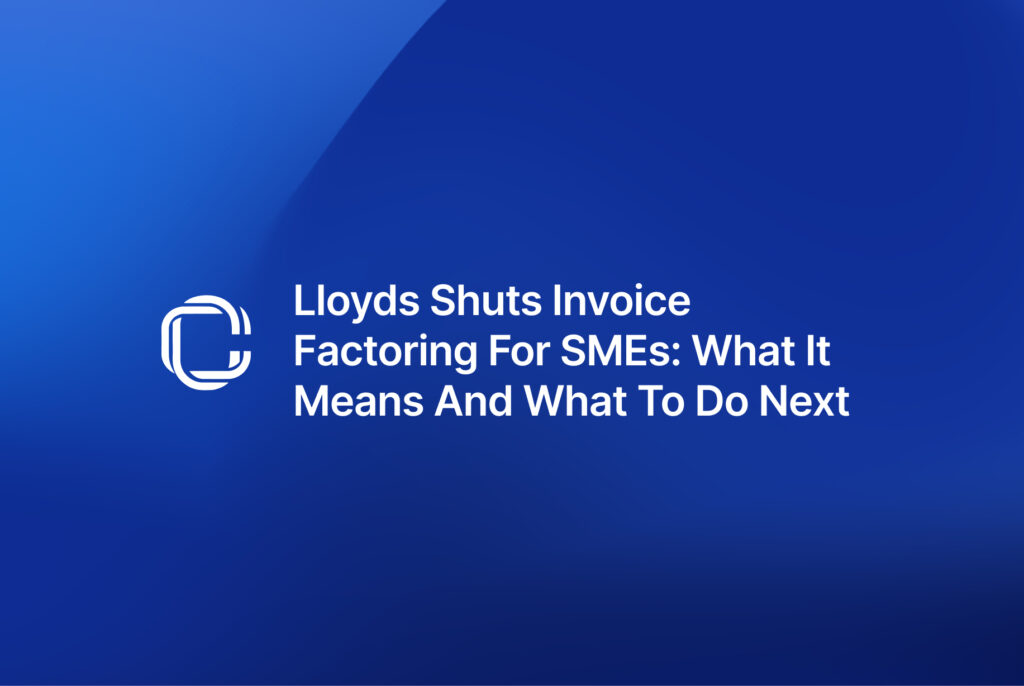Learn how to calculate statutory and contractual interest on money owed before filing a UK small claim. Step-by-step 2025 guide.
Before starting a small claim, you can add interest to the amount owed. Depending on the case, you may be entitled to statutory interest (8% per year under the County Courts Act 1984), contractual interest (the rate specified in your agreement) or late‑payment interest (for business debts, 8% above the Bank of England base rate). This guide walks you through the 2025 rules and explains how CaseCraft.AI simplifies the process by calculating interest automatically.
Introduction
If you’ve ever waited months for an invoice to be paid or watched a personal loan drag on, you’ll understand how time erodes the value of money. When money is owed, interest acts as compensation for that lost time. In the UK, creditors are allowed to add interest to overdue debts before issuing a claim. Yet many people either under‑claim or over‑calculate because they don’t know which rate applies or how to work out the numbers.
Small claims can feel deceptively simple: the debt is under £10,000 in England and Wales, and there’s no need for a solicitor. Nonetheless, getting the interest right is vital. Courts may refuse or adjust the interest if it’s wrong, and your letter before action should clearly state the sum due with interest. As a claimant, you need a methodical approach that aligns with legal rules but doesn’t require a law degree.
This article explains how to calculate interest on unpaid invoices and personal debts in 2025. You’ll learn the difference between statutory, contractual and late‑payment interest; how to compute daily interest; and when to stop counting. Examples show the maths in action, and an interest calculator table helps you check your own figures. Throughout, you’ll discover how CaseCraft.AI, the AI‑driven small claims platform with a £15 set‑up fee and 10% success fee (only if you win),automatically calculates interest and prepares court‑ready claims.
Why You Can Claim Interest on Money Owed
Interest compensates you for being deprived of your money. Under UK law, creditors who wait beyond the due date can add interest to what they are owed. In small claims, the ability to recover interest ensures fairness without punishing debtors unduly. Key reasons include:
- Compensation for delay: The government’s guidance on court claims explains that interest is calculated to compensate the claimant. Without interest, inflation erodes the debt’s value while the debtor benefits from the money.
- Encouraging prompt payment: For business‑to‑business debts, statutory interest is set at 8% plus the Bank of England base rate. This higher rate incentivises companies to pay on time rather than treat unpaid invoices as free credit.
CaseCraft.AI is built for claims under £10,000 and provides step‑by‑step guidance. You don’t need legal knowledge; the platform automatically applies the correct interest rate and includes it in your claim.
Types of Interest You Can Claim
Statutory Interest
Statutory interest applies when no other rate is agreed and the debt isn’t a commercial invoice subject to late‑payment rules. Section 69 of the County Courts Act 1984 allows county courts to award “simple interest, at such rate as the court thinks fit”. In practice, courts and HM Courts & Tribunals Service (HMCTS) use a default rate of 8% per annum.
How to calculate statutory interest:
GOV.UK guidance provides a clear method for calculating statutory interest:
- Work out the yearly interest: multiply the amount owed by 0.08 (8%).
- Work out the daily interest: divide the yearly interest by 365.
- Multiply by the number of days overdue: count from the due date to the day you issue your claim.
For example, if a client owes you £1,000, the annual interest is £80 (1,000 × 0.08 = 80); dividing £80 by 365 gives a daily interest of about £0.22. If payment is 100 days late, the total interest is £22 (0.22 × 100). Section 69 lets courts vary the rate if circumstances warrant, but using 8% is typical for small claims.
When does statutory interest run?
- Start date: from the date the debt became due, usually the invoice due date or the day after the loan was supposed to be repaid. If there were agreed payment terms, interest runs after the term ends.
- End date: until judgment or full payment. You can claim interest up to the date you issue proceedings and ask the court to award further interest up to judgment.
- Personal loans and consumer debts: If there is no written agreement, statutory interest may be your only option. For example, a friend owing you £500 since 1 January 2025 would accrue 152 days of interest by 1 June 2025. Using 8% per year, the interest is £500 × 8 % × (152 ÷ 365) = £16.66.
Note: Payment is considered late 30 days after an invoice is delivered or goods provided if no terms were specified. After this period, statutory interest (8 % plus base rate) applies.
Contractual Interest
Contractual interest applies where your agreement sets its own rate; in those cases, you claim the contract rate instead of statutory late-payment interest. UK guidance confirms you cannot add statutory interest if a different rate is set in the contract for commercial debts, and many UK contracts peg late-payment interest to the Bank of England base rate.
- Evidence requirement: To claim contractual interest, you must refer to the clause in the contract. Courts will not enforce a rate higher than is stipulated or that appears punitive, so keep the rate reasonable.
- Calculation method: Follow the same steps used for statutory interest, but replace the 8% with the contracted rate.
Late‑Payment Interest (Commercial Debts)
For business‑to‑business transactions, the Late Payment of Commercial Debts (Interest) Act 1998 applies. GOV.UK explains that “statutory interest” on late commercial payments is 8% plus the Bank of England base rate. Because the base rate changes, this interest rate varies during the year.
2025 Base Rates
In September 2025 (meeting ending 17 September), the MPC voted to maintain the Bank Rate at 4%. According to Pay On Time’s reference table, the 2025 periods were:
| Period | Bank of England base rate | Statutory interest (base + 8 %) | Source |
| 1 Jan – 30 Jun 2025 | 4.75 % | 12.75 % | Pay On Time table |
| 1 Jul – 31 Dec 2025 | 4.25 % | 12.25% | Pay On Time table |
To calculate late‑payment interest on a £1,000 invoice overdue for 50 days between 1 July and 31 December 2025:
- Annual rate: base rate (4.25 %) + 8 % = 12.25 %.
- Daily rate: (£1,000 × 12.25 %) ÷ 365 ≈ £0.34 per day.
- Total interest: 50 days × £0.34 = £17.00.
Businesses can also add a fixed compensation of £40, £70 or £100, depending on the invoice value (up to £999.99, £1,000–£9,999.99, £10,000+). This covers the administrative cost of chasing payment.
Contract Overrides Statutory Interest
If a contract specifies its own interest rate, you cannot claim statutory late‑payment interest. However, the contractual rate must be expressly written and fair; otherwise, the statutory rate applies by default.
How to Calculate Daily Interest
Interest calculations may seem daunting, but they follow simple formulas. Here are the key steps.
Formula for Daily Rate
The basic daily interest calculation is:
Daily Interest=Debt Amount×Interest Rate365\text{Daily Interest} = \frac{\text{Debt Amount} \times \text{Interest Rate}}{365}Daily Interest=365Debt Amount×Interest Rate
- Debt amount: the principal sum owed (including VAT if it’s a commercial invoice).
- Interest rate: expressed as a decimal (8% = 0.08; 12.25 % = 0.1225).
For example, a £2,000 debt at 8 % statutory interest has an annual interest of £160 (2,000 × 0.08). The daily interest is £160 ÷ 365 ≈ £0.44.
When to Start Counting Interest
You count interest from the day after the payment was due. In business transactions without payment terms, payment is considered late 30 days after the invoice or goods are delivered. If terms specify “30 days from invoice,” start counting on day 31. For loans, start the day after the repayment date.
When to Stop Counting Interest
- On full payment: Stop when the debtor pays the principal and any agreed interest.
- When judgment is entered: If you file a claim, ask for interest to continue up to the date of judgment. Section 69 interest stops at judgment. You can ask the court to award further interest on the judgment debt under the Judgments Act 1838 (8% per year) while enforcing payment.
Tools for Calculation
You can calculate interest manually or use a spreadsheet. Excel formulas (e.g., =Amount*Rate/365*Days) make daily interest easy. GOV.UK and the Small Business
Example Scenarios
Example 1 – Personal Loan (No Contract)
- Scenario: You loaned £500 to a friend on 1 January 2025 with no written agreement.
- Due date: You expected repayment on 1 January 2025.
- Claim date: 1 June 2025, 152 days overdue.
- Interest type: statutory (8% per year).
Calculation: £500 × 8 % × (152 ÷ 365) = £16.66 interest.
Example 2 – Unpaid Commercial Invoice (Statutory Late‑Payment Interest)
- Scenario: You supplied goods worth £10,000 to a business. Payment was due on 1 March 2025 and remained unpaid as of 1 June 2025 (92 days overdue).
- Interest type: 12.75% (base rate 4.75% + 8 %) for 1 January–30 June 2025.
| Debt (£) | Rate | Days late | Interest (£) |
| 500 | 8 % | 152 | 16.66 |
| 10,000 | 12.75 % | 92 | 322.74 |
How to Add Interest to Your Money Claim
When you file your claim (whether through CaseCraft.AI or via paper forms), you must explicitly request interest:
- Letter Before Action: Before filing, send a letter before action setting out the debt, the amount of interest and a deadline for payment. A sample letter should include your details, the debtor’s details, a description of the debt, the total amount owed (principal + interest) and a clear deadline. Mention that you will seek court action if payment isn’t made.
- Claim Form: Include a statement in the “particulars of claim” (Box 5 on the official form) that you seek interest at the applicable rate from the due date to the date of judgment. Specify the rate (e.g., “8% per annum pursuant to Section 69 of the County Courts Act 1984”) or the contract clause.
- Ask for continuing interest: In your claim, request interest to continue at the same rate until judgment is paid. Courts regularly award interest under the Judgments Act 1838 at 8 % per year on unpaid judgments.
Common Mistakes When Calculating Interest
Wrong start date: Interest starts from the date payment became due, not when goods were delivered or when you file the claim. Always check the payment terms.
Mixing rates: Don’t apply the statutory 8% and a contractual rate. Use one or the other based on your agreement.
Ignoring leap years: For long overdue debts, count the actual number of days (including 366 days in leap years) to avoid minor miscalculations.
Forgetting compensation: In commercial cases, you can claim fixed compensation on top of interest.
Failing to mention interest in the Letter Before Action: Courts expect pre‑action protocols to be followed. If you don’t specify interest in your letter, you may struggle to claim it later.
Note: This blog is general information for UK small-claims users (not legal or tax advice). For personalised guidance, consult a UK solicitor about claiming interest, and speak to a tax specialist (e.g., a Chartered Tax Adviser or chartered accountant) about any tax implications.
FAQ: About Interest on Money Owed
Q1. How do I calculate interest before filing a small claim?
Multiply the debt by the applicable interest rate (statutory 8% or contractual), divide by 365 to get daily interest, then multiply by the number of days overdue. For commercial debts, use the Bank of England base rate plus 8%.
Q2. Can I charge interest if there’s no written contract?
Yes. If there is no contract, you can claim statutory interest at 8% per year. Interest runs from the date the debt became due until payment or judgment.
Q3. Can I claim compound interest in small claims court?
Generally, no. The County Courts Act 1984 allows simple interest on debts. Compound interest may be awarded only if expressly allowed in a contract.
Q4. Is interest taxable if I win my claim?
Statutory and contractual interest are usually treated as taxable income. You may need to declare any interest received on your tax return, though small amounts in personal cases may fall below tax thresholds. Seek advice from a tax professional.














